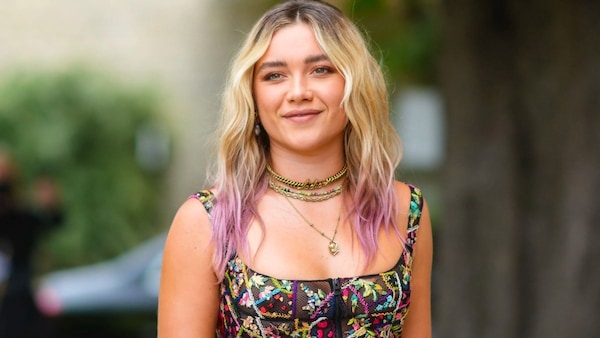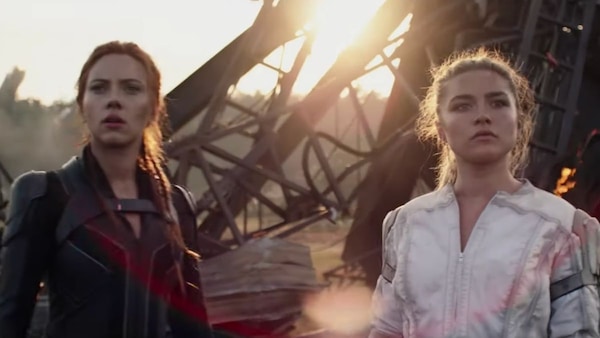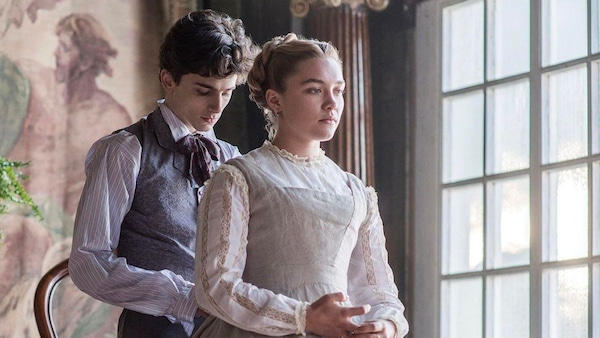Florence Pugh: A force to reckon with?
As Florence Pugh turns a year older, here’s decoding how she promptly became Hollywood’s ‘it girl’.

Last Updated: 10.33 AM, Jan 03, 2022
Having grown up in England, actress Florence Pugh belonged to a family of hosts. While her grandfather was in the business of owning a pub, her father ran and owned restaurant chains across Oxford. Thus, for Pugh, serving the masses (even in terms of providing them with entertainment) came very naturally.
Having begun her career with less-than-prominent roles, Pugh gradually made her way into the coveted books of Hollywood’s biggest producers. Her breakout performance was with Park Chan-wook’s extremely slick TV adaptation of John le Carré’s The Little Drummer Girl. Pugh was apparently so convincing in the film, her role inspired le Carré to enlist one of his upcoming literary characters as Florence.
The same year, Pugh’s other projects hurled her towards an A-league of artistes. With the wrestling comedy Fighting With My Family, which had The Office co-creator Stephen Merchant onboard, and Ari Aster’s Midsommar, Pugh was able to connect with the global masses.
Her onscreen appeal and deftness at her craft were not difficult to spot. Within two years of these films, the actress managed to find an inroad into the mammoth MCU with Black Widow, playing Scarlett Johansson’s athletic sidekick, Yelena.
Pugh’s roles and her execution of them have evidently bolstered her star power, also increasing her equity as a bankable actress. But what her performances also reflect is a purposeful move to be part of narratives that push the conversation a certain way; of women writing women’s stories; of women knowing exactly what they want; of women having valid points of view.
Yelena’s character, for example, was completely new territory for Pugh who self-confessedly, “didn’t quite know what it was to be involved in one of these films.”
However, on her arrival to the sets, she promptly entered the stuntmen’s warehouse and diligently began learning her action sequences. Even though the actress was provided with a body double, she was determined to do most of her scenes herself.
The film’s Australian director Cate Shortland termed the actress as “bloody scary”, adding that Pugh “has a healthy amount of anger in her as a person, at the injustices she sees around her.”

The other salient feature about Pugh and her career arc is the fact that the actress has determinedly chosen parts that depict flesh and blood characters who feel lived and real. Oft-flawed, Pugh’s cinematic alter-egos are not only imperfect but are quirky bundles of everyday-ness, a characteristic that all of us are guilty of possessing.
With Midsommar, Aster’s masterclass on filmmaking, Pugh showed the world her intense ability to mask equally convincing sides of her personality underneath a veneer of vulnerability. Though it was Aster’s vision, Pugh’s hard work made Dani deliciously evil. Greta Gerwig’s 2019 retelling of Little Women saw Pugh play Amy March, a strong-willed survivor, who ultimate tethers the entire family.

Interestingly, Pugh’s cinematic graph has simultaneously colluded with Hollywood’s new-age characteristic of placing women smack at the centre of all the main action (both on and off-screen). Carol Morley’s The Falling was one of the actress’ first projects to feature her in a role directed by a woman. An alluring plot set in an all-girls school, the film highlighted hysteria.
Gerwig and Shortland’s films further emboldened the fact that Pugh belonged to a new crop of actors who were instead part of a league where women were calling (at least some) shots. In multiple interviews, Pugh mentions how she is aware of this fact, which has also made her cognizant of her abilities to permanently shift the narrative. Citing fellow bosslady Jennifer Lawrence’s unabashed objection to getting paid lesser than her male counterparts, Pugh noted that women’s characters on screen are written with way more purpose now. As she put it, “they’re actually making a reason for women to talk in films now. When a woman speaks, she’s going to have something to say.”

